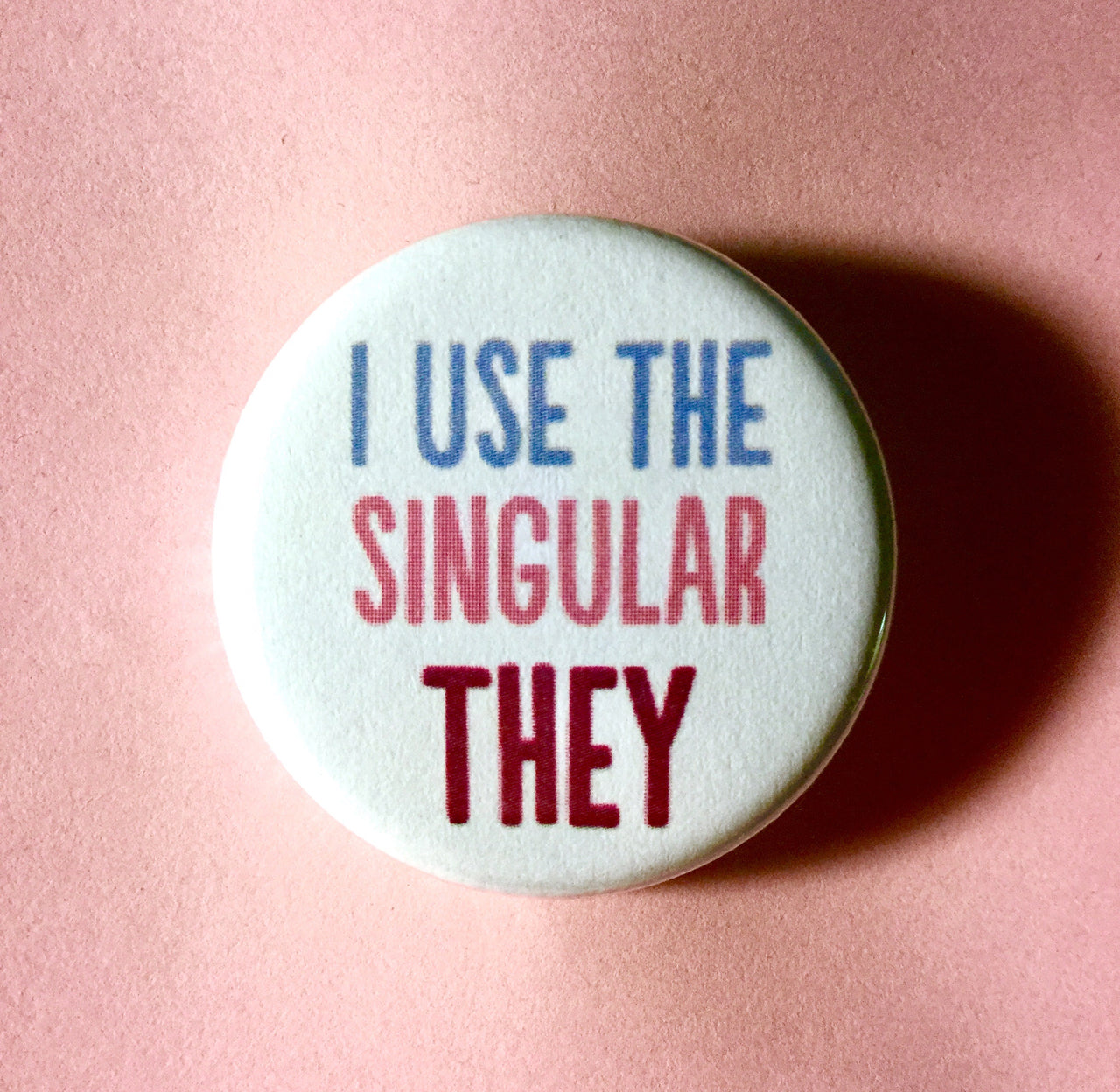
How do you feel about the following sentence? "Somebody left their briefcase in the restroom." Some of us will feel sorry for the poor cretin who lost his or her briefcase; others of us will feel no sympathy for the poor devil but will fixate on the fact that the author used a plural pronoun, their, to refer back to the singular antecedent, "somebody." For shame! How can "they" or its forms, them, their, and themselves, be a pronoun for a single person? An abomination! Sister Pius should rap your knuckles with a ruler for such an abuse of the English language.
So, what's a person to do? The purists, I presume, would want the sentence to read: "Somebody left his or her briefcase in the restroom." That is downright awkward, my friend. Not to mention the germs that briefcase has been exposed to.
The problem is the English language does not have a gender-neutral singular pronoun. That is why so many of us use the plural pronoun, they, as a gender-neutral substitute.
Which is better? A. Ask each of the children what they want for a snack. B. Ask each of the children what she or he wants for a snack."*
To the consternation of the grammar purists, choice A is becoming the accepted norm. The Washington Post in its 2015 style guide recognized the use of they as an acceptable gender-neutral pronoun. In 2016 the American Dialect Society chose this particular use of they as the "word of the year."And as the Mirriam-Webster Dictionary points out, this usage has been around since the 1300s. In 1881 our quite proper Emily Dickinson was availing herself of this usage.
On the other hand, The stodgy Modern Language Association is somewhat reluctant to give its imprimatur. And as you would suspect, "The Gray Lady" (NYT) is ambivalent about such usage. Its style guide permits the usage if the individual so desires, but warns about the dangers of using it too frequently.
The bottom line is this usage has been around since the 1300s and is not going away. The purists need to move on to another battle. This one has been lost. And, like Farhad Manjoo, writing in the NYT observes, not only does this usage solve a problem, it is "inclusive and flexible."
Of course, everybody is entitled to their (her or his) own opinion.
* Farhad Monjoo in the NYT writes that the phrase, "he or she," is the "clunkiest phrase ever concocted by small-minded grammarians."
